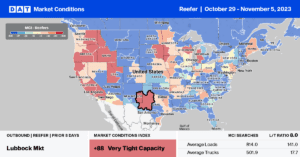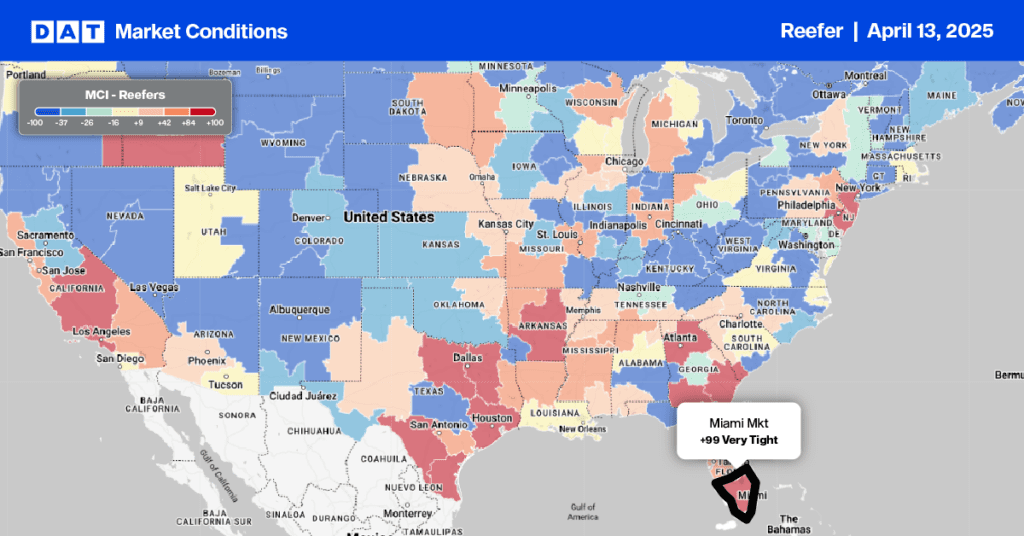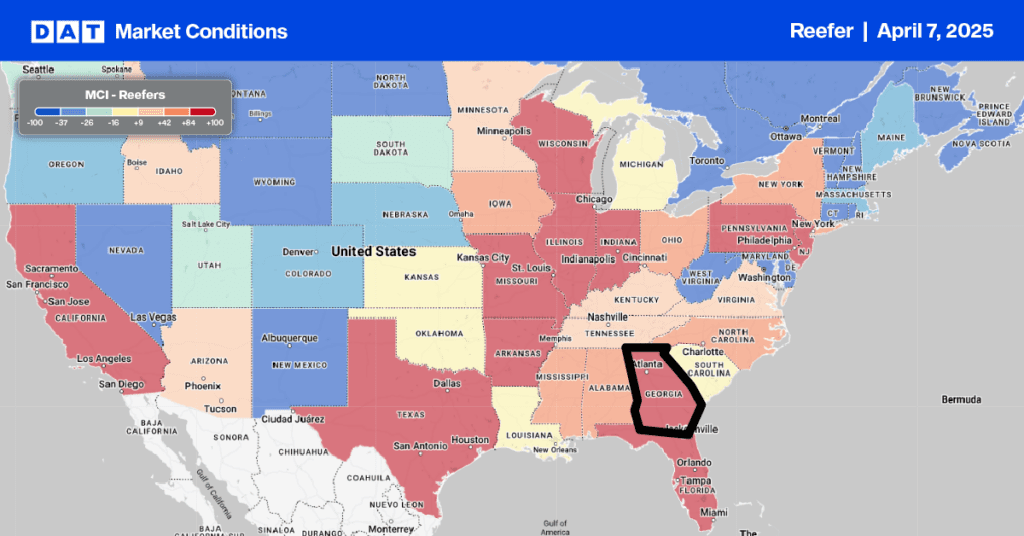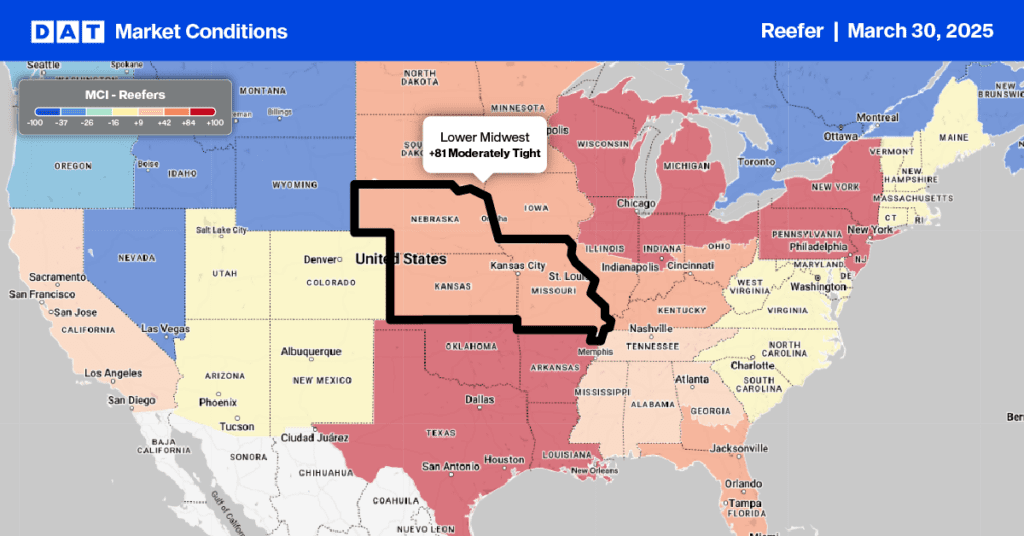The tomato harvest in the Sacramento Valley has just finished, along with the late harvest of almonds, grapes, onions, figs, olives, and plums. Tomato volumes have been substantial, according to Aaron Giampietro from Morning Star, with an estimated 12.9 million tons for the 2023 five-month season, 15% higher than the five-year annual tonnage. Despite the USDA reporting tomato truckload volume is up 38% y/y, total truckload volumes for all commodities in California are down 18% compared to last year. Overall, demand is soft, and according to the USDA, there is an adequate supply of trucks for outbound loads from California to 10 major cities, including Atlanta, Baltimore, Boston, Chicago, Dallas, Los Angeles, Miami, New York, Philadelphia, and Seattle.
It’s also time for the annual Diwali Festival, and beginning this week, many Sikh (a religion that originated in the Punjab region of India in the 15th century) drivers in California and in particular in the Stockton freight market, will take the week off to celebrate the festival of lights. This will result in an observable reduction in truckload capacity. The five-day celebration is observed every year in early Fall after the conclusion of the summer harvest. According to Raman Dhillon, chief executive of the North American Punjabi Trucking Association (NAPTA), “Punjabi Sikhs make up 20% of the country’s truckers and control as much as 40% of the industry in California.”
The Stockton freight market is one of many areas typically impacted by reduced capacity during the Diwali Festival. San Antonio, Texas, is also expected to see a truckload capacity reduction, hosting the largest city-sponsored and city-sanctioned Diwali Festival in the country.
Market Watch
All rates cited below exclude fuel surcharges unless otherwise noted.
At $2.17/mile last week, outbound reefer linehaul rates in essential pork and fresh turkey-producing states (Arkansas, Missouri, North Carolina, and Minnesota) were around $0.30/mile lower than last year. Solid gains were reported in North Carolina, the number two state for turkey and Christmas tree production, where linehaul rates surged by $0.16/mile, averaging $2.02/mile last week. In Minnesota, the number one state for fresh turkeys, outbound reefer rates averaged $2.32/mile last week, up $0.02/mile w/w and $0.11/mile higher than in 2019.
Reefer spot rates in Texas increased by $0.06/mile last week to $1.79/mile, while in California, linehaul rates increased by $0.02/mile to $2.22/mile. In California’s second-largest reefer spot market of Fresno, spot rates increased by $0.09/mile last week to $2.25/mile, while in Los Angeles, the state’s largest reefer market, outbound reefer rates average $2.23/mile, up $0.02/mile w/w. Fall produce and the start of Christmas tree shipping in the PNW resulted in tighter capacity last week, increasing reefer rates by $0.08/mile to $2.15/mile for outbound loads.

Load to Truck Ratio (LTR)
Boosted by Christmas trees, Fall produce, fresh turkeys, and pork shipments ahead of Thanksgiving, reefer load posts (LP) surged by 24% w/w, slightly higher than the increase we have typically seen in prior years. Carrier equipment posts (EP) were down 11% w/w, resulting in last week’s reefer load-to-truck ratio (LTR) spiking by 40% to 3.98. However, this is still the lowest reefer LTR in seven years.

Spot Rates
Reefer spot rates increased by almost $0.05/mile last week, the most significant weekly gain since Mother’s Day. At $1.92/mile, reefer linehaul spot market rates are $0.16/mile lower than last year and around $0.07/mile higher than in 2019.



